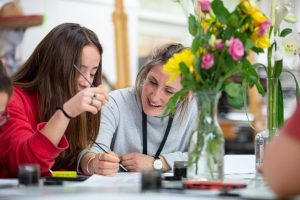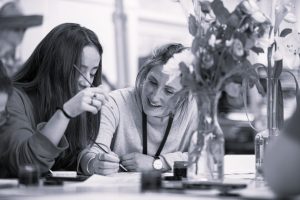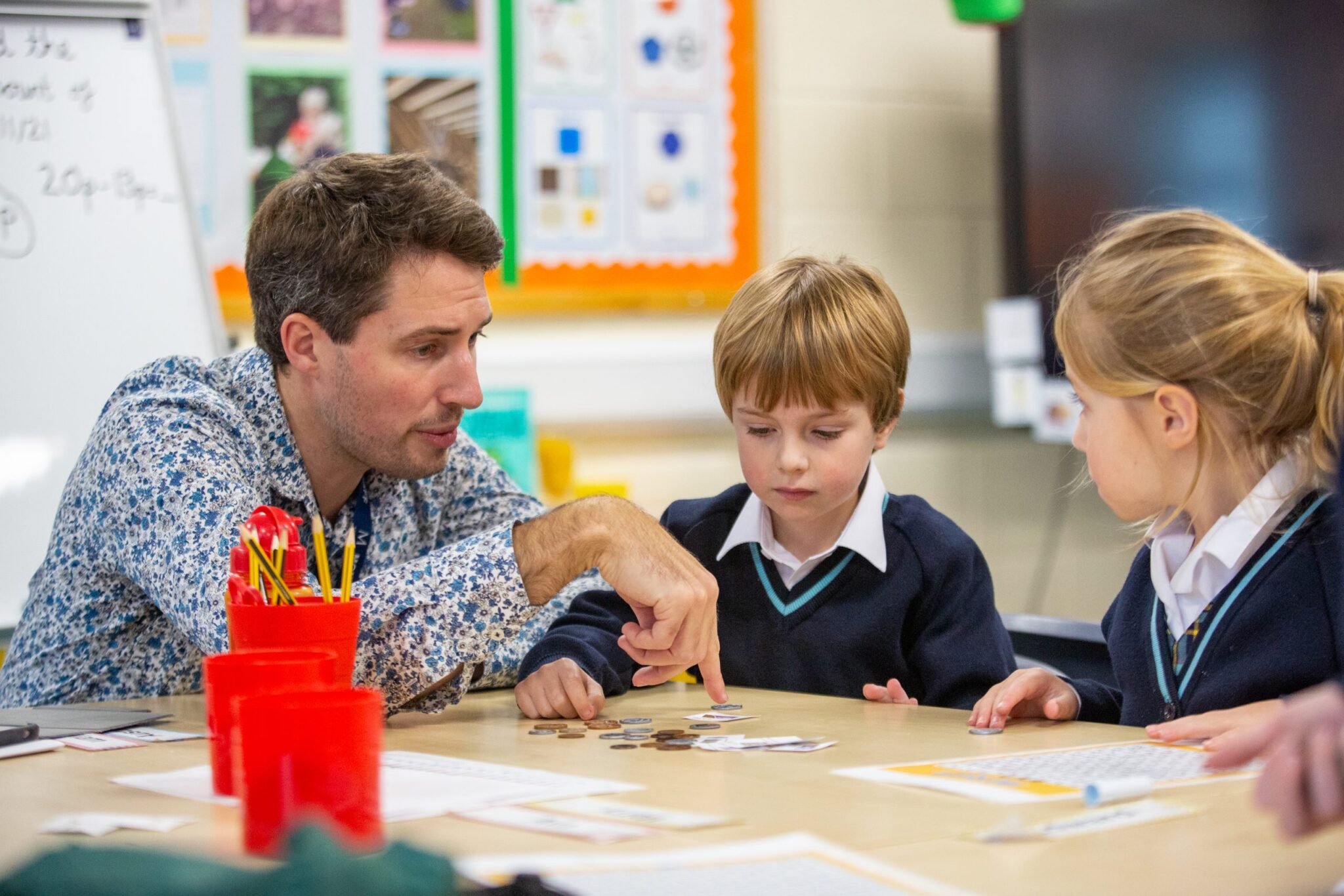A primary school in Birmingham has introduced a small farm to inspire pupils and bring the community together. The BBC went to see the impact the animals have had.
“There were lots of interesting questions from the children when we first got the alpacas, such as why have we got camels at school?
“When we first got Buster the goat they asked why I had brought my dog to work?”
Philip Hynan became head teacher of St Michael’s C of E Primary School in Handsworth, Birmingham, in September 2021, its fourth boss in two years.
The school, in one of Birmingham’s most deprived wards, lies just off the bustling, traffic-laden Soho Road and is perhaps not a place you would expect to find a small-holding.
Mr Hynan’s priority was to raise learning standards. One of the ways he wanted to do that was to engage with the community – and so the school opened a farm.
“We felt that in order to raise standards in teaching and learning we needed to get everybody on side,” he said.
“The farm has won us a lot of fans – we see lots of people passing by, looking through the fence and taking photos.”
The idea came from his childhood. Although he grew up in Birmingham, he and his sister would spend summer holidays at a relative’s farm in southern Ireland.
“The farm gives the children responsibility, they have jobs and tasks they have to complete on a daily basis plus it gives them a need to think about others,” he said.
Pupils arrive early to feed the alpacas, make sure the goats have not escaped and check on the chickens.
In the spring, they get to hand rear and bottle feed lambs rejected by their mothers.
The goats are firm favourites, mainly because they keep escaping. Looking after the animals was their favourite thing about school, the children said.
“They’re cute and I just like being around them,” one said.
Charitable groups such as Newbigin Community Trust, Southfields Farm and North Edgbaston Sports Club loan the animals to the school for extended periods.
Not all the farm work is done by the children, though. Cleaning the enclosures and scooping up the poop is a weekly task for the headteacher.
But it is not all about the farm. Nearby residents have transformed part of a disused playground into an allotment.
Vegetables, including corn, cabbage, onions, carrots and beetroot are grown, and a community pantry has sprung up, where families can take some of the produce home.
School governor Shuranjeet Singh helped out with the allotment.
He said he contacted the school and asked how the community could support it.
“The school’s vision was so important for me because it recognised the well being of the pupils rested on the wellbeing for families and the wellbeing of the community,” he said.
Volunteers cleared out the space, family members built planters and the allotment was developed by school and community.
Volunteers, including members of Soho Road Bid, mental health support group Taraki, the Grimmit Trust and Humanify, now give up about half a day to week to volunteer as well as help with funding.
“For the children it’s been about seeing things grow and recognising where things come from,” said Mr Singh.
“Its been a learning experience for me too, I didn’t realise carrots didn’t grow slightly out of the ground.”
Next on the list of things to do at the school is complete work on creating a community hub, a place for families and for other community groups to gather on the school grounds.
But what do the children want to see?
“They’ve asked for a horse and for a cow. I’m not sure we’ve got enough land, enough grass,” Mr Hynan said.
“But one day, maybe.”
Source: The farm at an inner city Birmingham school – BBC News



